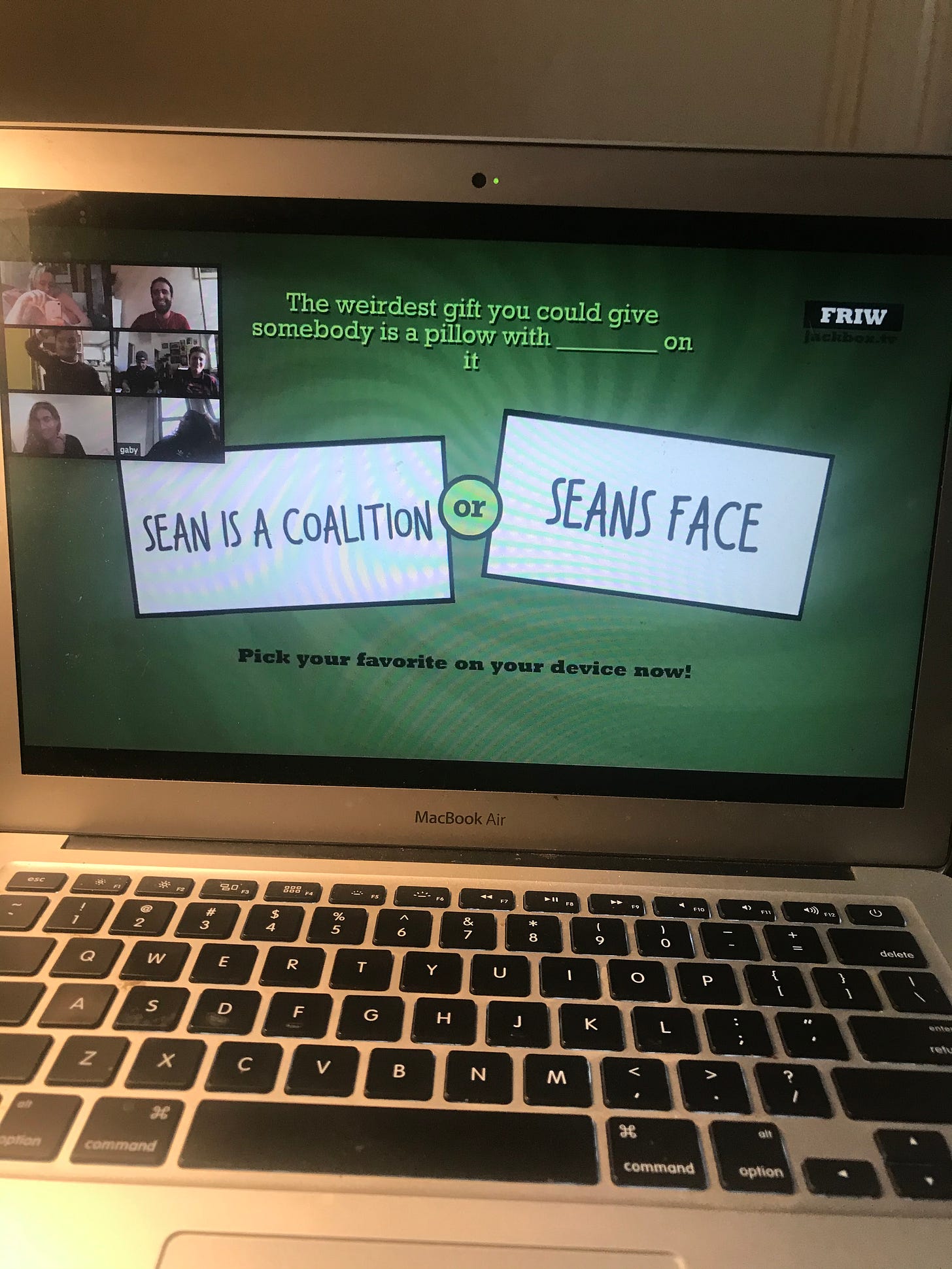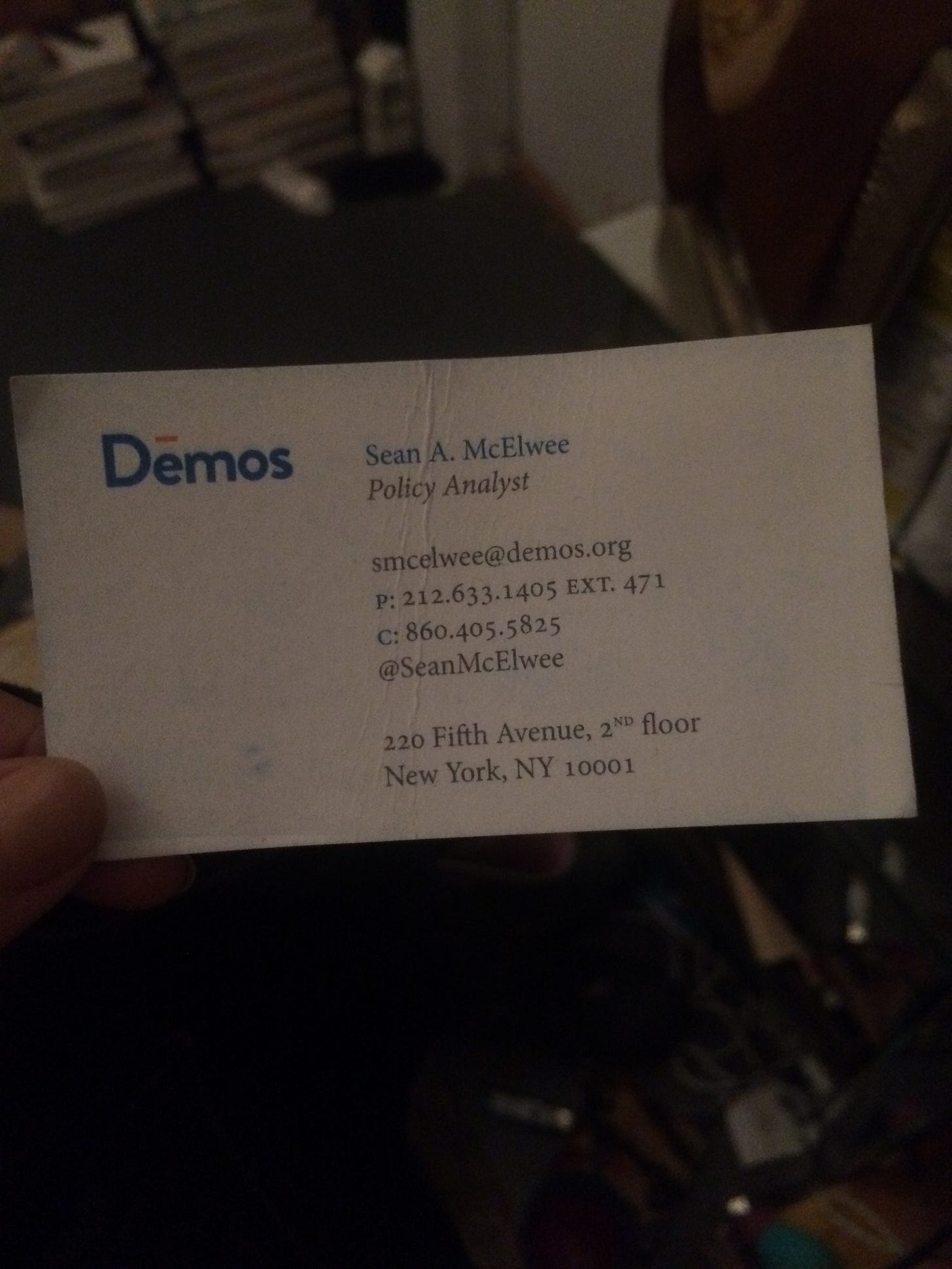I first heard about Blue and Gold through a guy I was casually dating. I was new to New York, I’d published a few pieces online, but mostly I was a waitress. I didn’t even have the background in writing to know what kind of writer to classify myself as in the online sphere. When said guy talked about the Thursday night political happy hour he attended with other writers, I knew I wanted in, but I was too shy to ask for an invitation. He seemed protective over it, like it was something special that might matter one day. It’s really a shame that he turned out to be correct.
I didn’t end up attending Blue and Gold until after he and I broke up. I weaseled my way into an invitation as a pity concession. I started going all the time. I knew that I wanted something from the New York writing scene, but I didn’t know exactly what it was, and certainly didn’t know how to get it. Blue and Gold became instrumental in me obtaining that je ne sais quoi in the end, but no, I did not learn political secrets or influence the next generation of socialism or become privy to financial crimes. I did something, that is, depending on how you look at it, either tiny or gigantic in comparison: I found all my friends.
The news articles would have you believe that the next great minds of our generation were being groomed for political office, but most of us don’t see it that way. The people that the articles name-drop, AOC, Kristen Gillibrand, and possibly Mayor Pete, all came by only once. All of the press coverage has looked like a kangaroo court to anyone who was there: we were never convinced that any of the regulars mattered beyond our immediate social psychodramas.
It’s where I learned that you should always refer to yourself as a leftist and never as a liberal. The bartender taught me about whiskey and my peers taught me about local publications. A certain MSNBC host gave me and my friend almost an entire pack of cigarettes because his wife didn’t like it when he smoked.
Sean McElwee didn’t invent abolish ice. I thought we’d been over this! He hashtagged a phrase that people were already using and made it into his own personal brand.
Though intellectually I know that the happy hour I went to nearly every week for three years is the same one that is discussed in these publications, the thing they’re describing doesn’t match my memories, to the point that their description of Blue and Gold feels made up to serve a convenient narrative about an enfant terrible’s fall from grace. Reality was, per usual, more boring and inconsequential, but also more fun.
This is what we thought about Sean: that he was annoying, a poseur, and creepy to women. Everyone made fun of his tweeting and everyone knew that he was cheating on his longtime girlfriend. He had a habit of introducing people by their most impressive accolade while also communicating that he didn’t care for anything else about them.
On the weekend, he’d show up at other bars we all planned to go to, be visibly drunk, speak only to men, and then leave. If anything he was more of an oaf-ish clown than a threat.
Sean was a joke, but our Blue and Gold was not. Once I left my portable charger there; it was during a time that I had to carry it everywhere because my iPhone 7 couldn’t hold a charge for more than 30 minutes. When I came back the next week, the bartender, Chris, had it waiting for me behind the bar. To thank him, I got him a copy of The Flamethrowers by Rachel Kushner. It’s where I met the women with whom I eventually contributed to a #MeToo piece outing a journalist for abuse allegations, come to think of it, it’s where I met the man too. It was the good and the bad of those years, meeting your new best friend while almost getting hit in the face with a pool cue.
The times my friends and I look back on the most fondly: sitting in a booth drinking tequila sodas ‘because they would hydrate us’ (Chris looked on with a smile,) and screaming progressively louder about cocaine and sex until the normie careerists who were trying to edge into our table began instead to edge steadily away. The international women’s day when another keynote man in the group said “Here, it’s international women’s day, I’ll buy you two drinks; wait…then I won’t have enough cash to buy myself a drink.” The most important memory is that it was a place for a burgeoning group of friends to see each other every week, a public house where people who believed and cared about the same things could easily gather to create some kind of community. This year, two of the people who met there got married, with ten more of us in attendance. Someone got in touch with Chris, who has since moved to Maryland, and he texted his congratulations: “It’s so nice to see that you’re all still friends.”
I haven’t talked to Sean McElwee in years, likely around the time I started publicly saying that I hated him and thought he was a creep. I would loudly talk shit about him when I saw him at parties, and he got the message that we were no longer fake friends.
I can’t say for sure if any information of real value was ever traded at Blue and Gold, though my suspicion is a resounding no. The idea that the happy hour actually influenced young progressive politics is debatable. This is some major “journalists grasping at telling stories in order to write features” straws. Young people across the country becoming radicalized certainly has something to do with death capitalism, Trump and Bernie, and environmental collapse, but I’m not convinced it has anything to do with a bunch of twenty-something functional alcoholics.
The NYMag article refers to Sean as “being heralded as an avatar of a rising generation of millennial leftists.”
Who said this? I want to know who said this!
While “Get a bunch of well-connected and powerful people in a bar, mix in alcohol, and come out with their secrets” is certainly a sentence that the author of the recent piece was proud of, it’s not really what happened. Was there ever a secret shared, other than friends notifying each other who might be making out that week?
Watching Sean become a semi-public figure has been absurd, and hilarious. Every time one of these articles comes out, I inevitably get a DM about it being the ‘best day ever online.’
Sure, Sean’s time at Blue and Gold eventually contributed in one way or another to the money he made for Data for Progress, but that’s also the money he blew. Blood will out, and money is fake. The fact that he felt safe betting literal dollars and entrapping his coworkers in fraud shows you everything you need to know: this was always a game for him, which is how he became a joke to us.
It all feels so evident as to be preordained. Sean becoming a centrist, becoming a brand, becoming a shill, all flowed seamlessly from Sean being a brownnoser who had a penchant for the tallest women in the bar.
Apparently, some of the innocent people tangentially involved in this are facing life challenges right now. That sucks. Truly! Honestly, it sucks. I wish the best for anyone who was unwittingly involved in financial crimes or had a giant gambling baby as their boss.
That Sean has been outed as a hypocrite and a scammer comes as no surprise to anyone who knew him. A time traveler could have read that article to us in 2017 when we were all drinking four-dollar whiskey in Blue and Gold, and we would have nodded along, “Sounds about right.” That Sean has gone on to make and blow presumably thousands-millions of dollars and possibly break federal laws is an exercise in fate. Macbeth’s witches were there in the bar, whispering what was to come, and just like the king of Scotland, the progressive boy king fulfilled every prophecy.





